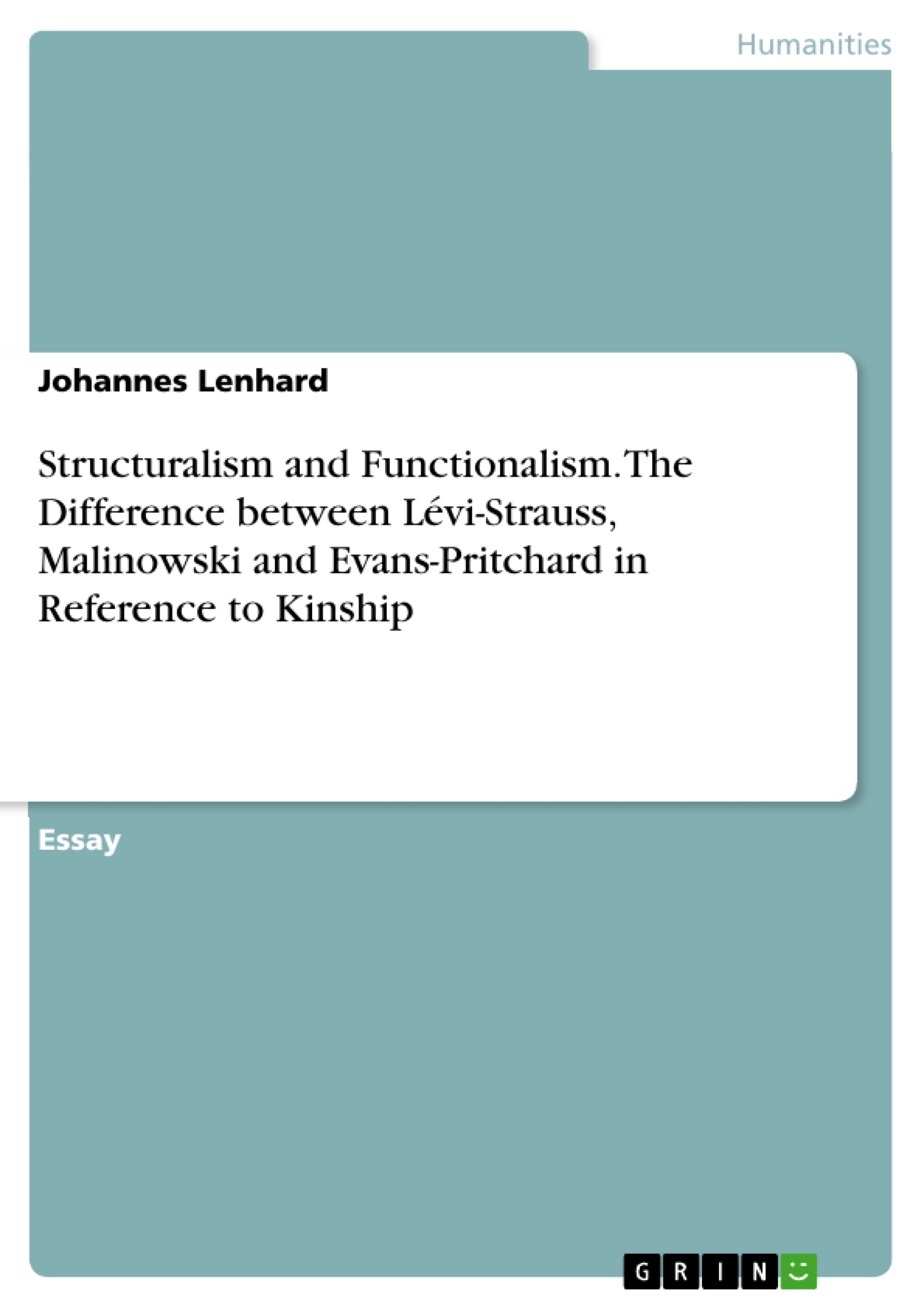Even though scholars directly involved in the discourse were themselves not able to clearly differentiate between structuralism, functionalism and the various combinations of the two terms, retrospectively, two lines have been drawn.
The first is between functionalism which was brought forward by Malinowski and his followers at the LSE and structural-functionalism. The latter was historically developed as a direct reply to a Malinowskian individualism by Radcliffe-Brown, Fortes and Evans-Pritchard.
The line this essay is going to blur separates structural-functionalism from originally French structuralism as coined by Levi-Strauss. I argue that those retrospective lines are nowadays often as artificial as they were for contemporary scholars in the early 1900s. Many commonalities – in their striving for universal laws, and even their fallacies – are contrasted by some differences, mainly in their treatment of fieldwork and the concept of structure.
The different schools of thought were organically growing out of each other rendering the continuity of features natural. Only paying attention in passing to the earlier, ‘purely’ functionalist school of Malinowski, I compare the structural functionalism most clearly visible in Radcliffe-Brown with Levi-Strauss’ structuralism. Let me briefly put forward his arguments on methods in general as well as function and structure in particular before Levi-Strauss enters the analysis.
Table of Contents
- Introduction
- Structural-Functionalism and Structuralism: Two Schools of Thought
- Radcliffe-Brown's Structural-Functionalism
- Levi-Strauss' Structuralism
- Commonalities and Differences in the Two Approaches
- Fieldwork and the Notion of Structure
- Conclusion
Objectives and Key Themes
This essay aims to explore the relationship between structural-functionalism and structuralism, highlighting the similarities and differences between these two schools of thought in anthropology. The essay focuses on the contributions of Radcliffe-Brown, Fortes, and Evans-Pritchard for the former and Lévi-Strauss for the latter. The analysis examines their methodological approaches and their views on kinship, while comparing and contrasting their arguments with particular attention to the concept of structure.
- The evolution and differentiation of structural-functionalism and structuralism
- The role of empirical observations and systematic comparison in both approaches
- The concept of structure as a stable grid beyond individual beings
- The search for generalizable rules and universal laws in kinship systems
- The influence of Durkheim's binary distinctions and de Saussure's linguistics
Chapter Summaries
The essay begins by outlining the two main lines of thought within functionalism, namely, functionalism as proposed by Malinowski and his followers and structural-functionalism as developed by Radcliffe-Brown, Fortes, and Evans-Pritchard. The author argues that while some scholars struggle to differentiate between the two schools of thought, they can be retrospectively distinguished. The essay then focuses on the similarities and differences between structural-functionalism and structuralism as proposed by Levi-Strauss.
The essay then delves into the methods employed by Radcliffe-Brown, describing his emphasis on empirical observations, systematic comparison, and the construction of classifications or types. It highlights his view of structure as a stable grid beyond individual beings and explores his focus on the jural significance of kinship and the principle of functional consistency.
The chapter then examines the commonalities between structural-functionalism and structuralism, both rooted in Durkheim's ideas and utilizing binary distinctions as a tool for analysis. The essay compares the structural functionalist emphasis on the "grid" over individuals to Levi-Strauss' analytical differentiation of kinship terms into binary pairs, pointing out the common ancestry in Durkheim's work. The essay continues by exploring the shared goal of both schools of thought in seeking generalizable rules, with structural-functionalism leading to classifications and types and Levi-Strauss emphasizing permutations and linguistic analysis.
Keywords
The core concepts explored in this text include structural-functionalism, structuralism, kinship, fieldwork, structure, function, binary distinctions, generalizable rules, universal laws, and the contributions of key figures like Radcliffe-Brown, Fortes, Evans-Pritchard, and Levi-Strauss. The text examines the evolution of these ideas, their methodological applications, and their impact on anthropological thought.
- Quote paper
- Johannes Lenhard (Author), 2013, Structuralism and Functionalism. The Difference between Lévi-Strauss, Malinowski and Evans-Pritchard in Reference to Kinship, Munich, GRIN Verlag, https://www.grin.com/document/209435




